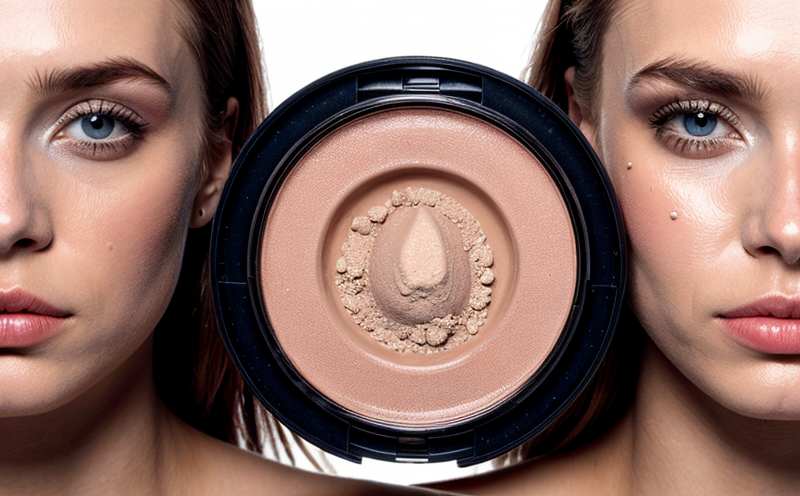EU Regulation Compliance for Heavy Metals in Cosmetics
The European Union's stringent regulations on cosmetics are designed to ensure consumer safety and protect public health. The EU regulation (EC) No 1223/2009, known as the Cosmetics Regulation, sets forth comprehensive guidelines that govern the production, distribution, and sale of cosmetic products within the EU. One critical aspect addressed by this regulation is the presence of heavy metals in cosmetics.
Heavy metals such as lead, mercury, cadmium, and arsenic are toxic elements that can pose significant health risks if present in cosmetic formulations above permissible limits. The Cosmetics Regulation stipulates maximum concentration levels for these metals to ensure they do not exceed safe thresholds during use. Compliance with this regulation is mandatory for all cosmetics sold within the EU.
To achieve compliance, manufacturers must conduct rigorous testing on their products using appropriate methodologies and instrumentation. This service focuses specifically on assisting clients in meeting these regulatory requirements by providing accurate and reliable analysis of heavy metals in cosmetic samples. Our laboratory adheres strictly to internationally recognized standards such as ISO/IEC 17025 for quality assurance and precision.
Our team uses advanced analytical techniques including Inductively Coupled Plasma Mass Spectrometry (ICP-MS) and Atomic Absorption Spectroscopy (AAS), which are highly sensitive instruments capable of detecting trace amounts of heavy metals down to parts per billion levels. These methods allow us to provide precise measurements that ensure your product meets EU standards.
The testing process involves several key steps: sample preparation, digestion using appropriate acids or solvents, dilution if necessary, and finally analysis by one of our specialized instruments. Results are reported according to the specified limits set out in the Cosmetics Regulation along with recommendations for corrective actions should any non-compliance be detected.
By partnering with us for this crucial service, you can rest assured that your cosmetic products will meet all necessary EU regulatory requirements regarding heavy metals content. This not only protects consumer safety but also enhances brand reputation and trustworthiness among customers.
Quality and Reliability Assurance
The quality of our services is paramount, ensuring consistent accuracy in every test performed. We maintain strict adherence to ISO/IEC 17025 standards which guarantee the competence and reliability of our laboratory operations. Regular internal audits and external accreditation reviews help us continuously improve our methods and ensure that we remain at the forefront of analytical technology.
Our experienced technical staff are highly skilled in using state-of-the-art equipment, including ICP-MS and AAS, to deliver precise results consistently. The proficiency of these instruments allows for accurate detection even when dealing with extremely low concentrations of heavy metals, which is crucial given the stringent limits imposed by EU regulations.
Moreover, we employ robust quality control measures throughout our entire testing process—from sample receipt through final reporting—to minimize errors and ensure data integrity. This includes standard operating procedures (SOPs), calibration checks, and proficiency testing programs conducted regularly to validate analytical performance.
We also offer additional services such as method validation support, where we assist clients in validating their own internal analytical methods against recognized international standards like those provided by ISO or AOAC International. This ensures that any custom approaches used within your organization are aligned with best practices and regulatory expectations.
Customer Impact and Satisfaction
The primary goal of our service is to ensure customer satisfaction through compliance with EU regulations related to heavy metals in cosmetics. By providing reliable testing results, we help clients meet legal requirements while maintaining product quality and safety standards. This not only protects consumers but also enhances brand reputation and trustworthiness.
Our approach goes beyond mere compliance; it focuses on offering valuable insights that can guide formulation changes or process improvements when necessary. For instance, if a particular batch of raw materials tests positive for high levels of lead, we would recommend alternative suppliers or suggest modifications to the manufacturing process to mitigate potential risks.
We understand the importance of timely delivery in business operations and strive to meet deadlines without compromising on accuracy. This ensures that your products can be brought to market quickly and efficiently, minimizing disruptions to supply chains.
Customer satisfaction is further enhanced by our commitment to transparency. We provide detailed reports explaining each step taken during testing, including raw data and interpretations of results. Additionally, we offer tailored advice based on findings, helping you make informed decisions about product development or regulatory compliance strategies.
Use Cases and Application Examples
| Use Case | Description |
|---|---|
| Raw Material Evaluation | Evaluating raw materials before incorporation into final product to ensure they do not contain excessive levels of heavy metals that could contaminate the finished cosmetic. |
| Process Monitoring | Monitoring production processes regularly to track changes in metal content due to process variations or changes in suppliers. |
| Batch Release Testing | Testing individual batches of cosmetics for compliance with EU regulations before release into the market. |
| Supplier Audits | Auditing raw material suppliers to ensure their products meet strict heavy metal limits as per EU regulations. |
| New Product Development | Testing new formulations during development stages to identify potential issues early on and prevent costly recalls later. |
| Post-Market Surveillance | Conducting periodic tests after product launch to monitor for any unexpected increases in heavy metal concentrations that might indicate contamination issues. |
| Third-Party Certification | Offering third-party certification services to independent organizations verifying that your products comply with EU regulations concerning heavy metals. |
In each of these scenarios, our laboratory plays a crucial role in ensuring that cosmetics meet stringent EU regulatory standards for heavy metal content. Our expertise and advanced analytical capabilities enable us to provide accurate, reliable data that supports informed decision-making throughout the product lifecycle.





